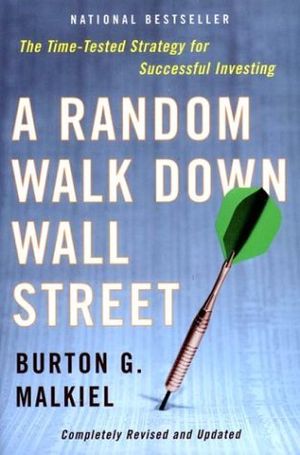Right from the start this book will be an excellent read for both financial advisors as well as their clients. Dr. Malkiel provides academic insight on the reasons why passive management works and some great commentary on the use of index funds as part of someone’s overall portfolio.
This was the second time I read this book and certainly not the last. It’s great reinforcement on why we invest our clients’ money the way we do and provides solid academic evidence that doing anything to the contrary is counterproductive, more expensive and simply playing a loser’s game.
Some of the bigger takeaways from the book are Dr. Malkiel’s thoughts and research on the different part of the Efficient Market Hypothesis or EMH. The EMH consists of three parts – the strong form, the semi-strong form and the weak form. The EMH essential admits that markets are efficient – meaning that current prices of stocks reflect all available information and prices adjust instantly to any changes in that information.
The weak form of the EMH rejects technical analysis as a way for beating the market and getting superior returns. Technical analysis can best be described as using past information to exploit future stock picks. Examples of exploiting such information are through charting, which is analyzing a stock based on its pattern of movement on a chart. Other examples given are those of anomalies that investors try to exploit such as the January Effect and the Dogs of the Dow.
The semi-strong form of the EMH says that analyzing a company’s financials, managers, and quarterly and annual reports will not help an investor or manager find stocks that will beat the market overall, thus bot technical and fundamental analysis of companies is futile.
The strong form of the EMH goes even further by stating that even inside information (think Martha Stewart and ImClone) won’t lead investors to superior returns over the market. So technical and fundamental analysis along with insider information are useless.
Admittedly, we know that anomalies exist and there are going to be differences here and there. Even Dr. Malkiel admits this – which is why it’s called a hypothesis and not a law. But the point to remember here is that even though markets have anomalies they are generally efficient and to the extent markets are inefficient, we won’t be the ones to beat them.
Think of it this way: if hundreds of Wall Street professionals and analysts can’t get it right, what makes us think we can?
So don’t try to beat the market; buy the market.
And that’s the meat and potatoes of this book.




 Sterling Raskie, MSFS, CFP®, ChFC®
Sterling Raskie, MSFS, CFP®, ChFC® The latest in our Owner’s Manual series, A 401(k) Owner’s Manual, was published in January 2020 and is available on
The latest in our Owner’s Manual series, A 401(k) Owner’s Manual, was published in January 2020 and is available on  A Medicare Owner’s Manual, is updated with 2020 facts and figures. This manual is available on
A Medicare Owner’s Manual, is updated with 2020 facts and figures. This manual is available on  Social Security for the Suddenly Single can be found on Amazon at
Social Security for the Suddenly Single can be found on Amazon at  Sterling’s first book, Lose Weight Save Money, can be
Sterling’s first book, Lose Weight Save Money, can be  An IRA Owner’s Manual, 2nd Edition is available for purchase on Amazon. Click the link to choose the
An IRA Owner’s Manual, 2nd Edition is available for purchase on Amazon. Click the link to choose the  Jim’s book – A Social Security Owner’s Manual, is now available on Amazon. Click this link for the
Jim’s book – A Social Security Owner’s Manual, is now available on Amazon. Click this link for the  And if you’ve come here to learn about queuing waterfowl, I apologize for the confusion. You may want to discuss your question with Lester, my loyal watchduck and self-proclaimed “advisor’s advisor”.
And if you’ve come here to learn about queuing waterfowl, I apologize for the confusion. You may want to discuss your question with Lester, my loyal watchduck and self-proclaimed “advisor’s advisor”.